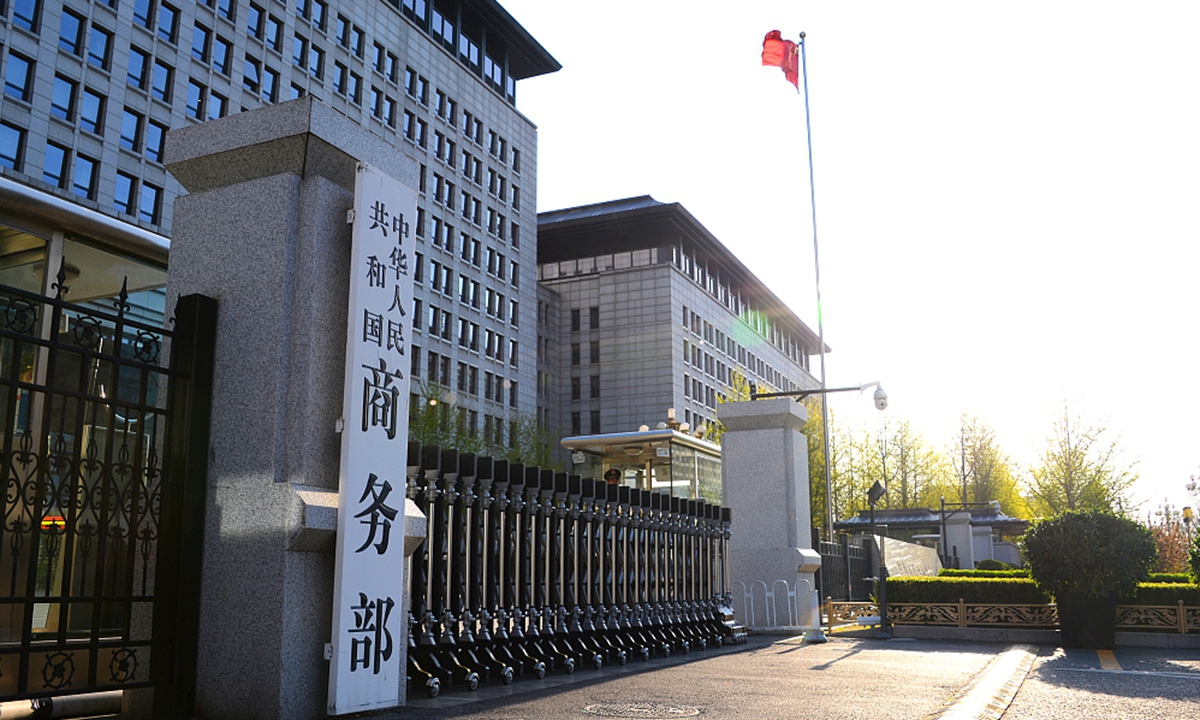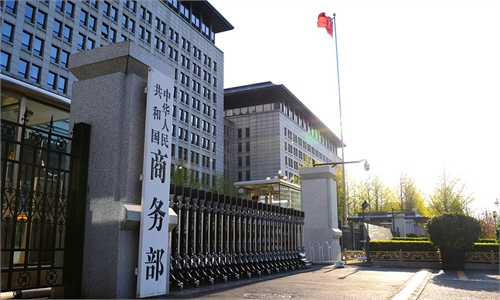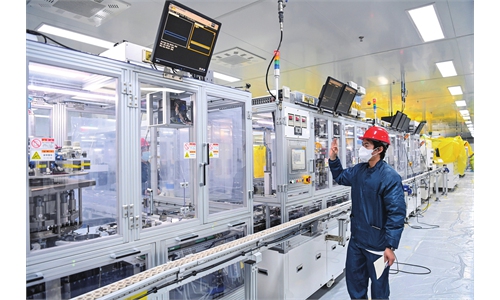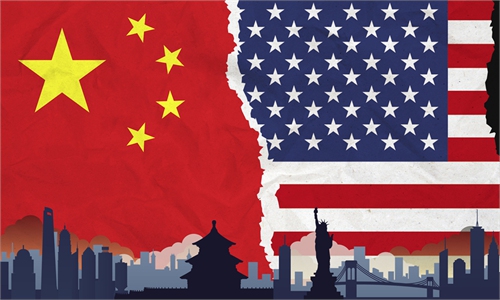China holds consistent attitude on welcoming foreign investment; Unreliable entities list only targets foreign firms jeopardizing China’s national security

The Ministry of Commerce Photo: VCG
China will unswervingly promote high-level opening-up, and the Chinese government holds a consistent attitude on welcoming foreign companies to invest and creating a fair and predictable environment for them, China's Ministry of Commerce (MOFCOM) said on Thursday, while stressing that foreign companies that operate in accordance with the law "absolutely have nothing" to be concerned about in relation to the unreliable entities list, which only targets those entities that endanger national security.
The comment comes as a number of foreign enterprises scale up investment in various sectors across China including new energy, medical products, vehicle production and logistics, which analysts said shows that foreign companies - disregarding certain countries' decoupling push - are "voting with their feet" on the business prospects of one of the world's largest markets.
China's open and welcoming attitude to all foreign investments also debunks certain media outlets' hype on so-called national security concerns, which they claimed are "a drag on foreign businesses' confidence." The assurance from Chinese officials stands in sharp contrast to Washington's reckless crackdown against Chinese advantageous industries under the guise of the overcapacity fallacy, observers said.
The recent addition of three US companies to China's unreliable entities list was a normal act of law enforcement, MOFCOM spokesperson He Yadong said at a regular press briefing on Thursday.
The repeated sales of offensive weapons that these companies have made to the Taiwan region have seriously undermined China's national security, sovereignty and territorial integrity, flagrantly violated the one-China principle and the provisions of the three China-US joint communiques, and severely disrupted peace and stability in the Taiwan Straits, He said.
The Chinese government will unswervingly promote a high level of opening-up, firmly safeguard the multilateral trading system, and resolutely protect the legitimate rights and interests of all kinds of market operators, the spokesperson said.
"As always, the Chinese government welcomes enterprises from all over the world to invest and expand business in China, and the country is committed to providing a stable, fair and predictable business environment for law-abiding and compliant foreign enterprises to operate in China," He said, in response to a question on whether the central government's initiation of an unreliable entities list signifies a shift in its attitude toward foreign investment.
China has always dealt with the issue of the unreliable entities list in a prudent manner, targeting only a very small number of foreign entities that jeopardize China's national security, and there is no need for honest and law-abiding foreign entities to have concerns, He stressed.
The ministry on Monday added three US companies - Boeing Defense, Space & Security, as well as General Atomics Aeronautical Systems and General Dynamics Land Systems - to the unreliable entities list for selling arms to the island of Taiwan.
Regardless of whether it involves an anti-dumping investigation or inclusion on the unreliable entities list, China will carry out the relevant work in accordance with Chinese laws, fully safeguard the rights of all parties, and handle the matter in a fair, just and prudent manner, the spokesperson noted.
The comments are deemed as a strong rebuttal to certain Western media's smears that China could use national security to "crack down" on foreign firms. The pledge is also a further leg up on the allure of the Chinese market, which is already on vivid display with a bunch of investments announced in recent months by leading multinationals.
On Thursday, US electric car producer Tesla broke ground on a mega factory in Shanghai, the Xinhua News Agency reported, marking the US company's first energy storage system factory outside the US to manufacture its energy-storage batteries known as Megapacks. The project is another major investment for Tesla in China following the inauguration of its Shanghai Gigafactory in 2019.
According to a statement logistics company DHL sent to the Global Times on Thursday, DHL has opened its latest Electric Vehicle Center of Excellence in Shanghai to support EV companies and related sectors to grow their presence locally and globally.
The company said that it sees rising shipping demand from EV companies and related businesses amid China's fast-rising EV industry, which now supplies "over half of the EVs on the roads worldwide and close to 60 percent of the world's battery cells."
"It is worth noting that the inflow of more foreign capital into the Chinese market is taking shape, regardless of the Biden administration's decoupling or de-risking push. That shows that foreign firms, including US ones, are taking a rational, pragmatic approach in their investments in China," Tian Yun, an economist based in Beijing, told the Global Times on Thursday.
Also, it speaks volumes for foreign capital's trust in the credibility of the Chinese government and its confidence in the domestic business environment, observers said.
Tian noted that China's complete supply chain in such technological sectors as new energy, as well as its well-developed basic infrastructure, make China a magnet for foreign investment.
"China's sheer market size, which is in a fast-track expansion period as the world's second-largest economy continues modest growth, is also an advantage for manufacturers such as Tesla," Tian said.
The vows on further opening-up align with the measures China took in recent months to boost international exchanges, including the extension of visa exemptions to more countries and regions.
"China's resolve to facilitate further opening-up is very clear, despite how the US has abused trade protectionism to suppress Chinese enterprises and industries," Tian noted. He expected more opening-up measures to be released this year, especially concerning the services industries and the construction of the Hainan free trade port.



